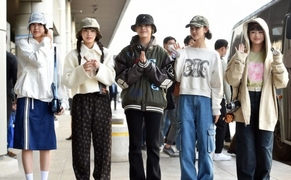 |
As Asia Today marks its 20th anniversary, a new survey reveals how the values and identity of South Koreans have evolved over two decades of upheaval. Conducted by the Korea General Social Survey (KGSS), the study captures the nation’s shifting consciousness amid political turmoil, economic transformation, and cultural globalization.
The latest round of the KGSS was carried out from April 1 to June 12, 2025 — a turbulent period marked by martial law in December 2024, the impeachment of the president in April, and the June 3 presidential election. The findings offer a candid snapshot of the Korean public’s mindset during one of the most unsettled chapters in recent history.
According to the survey released on November 9, Koreans overwhelmingly cited “economic leadership” (12%) as the most essential quality in a national leader, followed by “devotion to the people” (9%) and “leadership” (9%). Other valued traits included integrity (6%), honesty (6%), morality (6%), communication (5%), and social unity (5%).
In essence, Koreans yearn for leaders who can deliver economic prosperity and social cohesion — backed by ethical conduct and compassion for the public.
When asked about the most pressing issues facing the country, the economy (33%) remained at the top, but politics (26%) surged to second place — up sharply from just 9% in 2023. The rise in political concern reflects widespread anxiety over governance paralysis and deepening polarization following this year’s constitutional crisis, the KGSS said.
Pride in arts, sports, and science defines modern Korea
Despite political instability, the survey showed a remarkable rise in cultural self-confidence. A stunning 90% of respondents said they take pride in Korea’s sports achievements, while 89% expressed pride in its arts and literature — up from just 61% in 2003.
The figures mirror Korea’s cultural milestones: from the 2002 World Cup semifinal run and Olympic successes, to the global triumphs of BTS, Parasite, and Squid Game, and novelist Han Kang’s Nobel Prize in Literature in 2024. These milestones have propelled the globalization of Hallyu — the Korean Wave — transforming Korea into a global cultural powerhouse.
Meanwhile, 81% of respondents said they feel proud of Korea’s scientific and technological prowess, citing world-class achievements in semiconductors, nuclear power, shipbuilding, skyscraper construction, and consumer electronics led by conglomerates like Samsung and SK.
Confidence in social welfare systems (71%) also rose dramatically — up from just 18% in 2003 — largely due to the stability of the national health insurance program.
By contrast, pride in Korea’s political influence on the world stage (39%) fell sharply this year, reflecting the country’s uneasy position between Washington and Beijing in an intensifying trade and tariff confrontation. Observers noted that the aggressive tariff policies of the second Trump administration and China’s retaliatory measures have forced Korea into a “balancing act” between superpowers.
Pride in the functioning of Korean democracy (67%), which had been climbing in recent years, also dropped significantly — a result of this year’s political turbulence, including the imposition of martial law and government paralysis.
Overall, the data suggests a society that has become more pragmatic and globally aware — one that measures national success less by ideology and more by stability, innovation, and cultural excellence.
Most Read
-
1
-
2
-
3
-
4
-
5
-
6
-
7





















